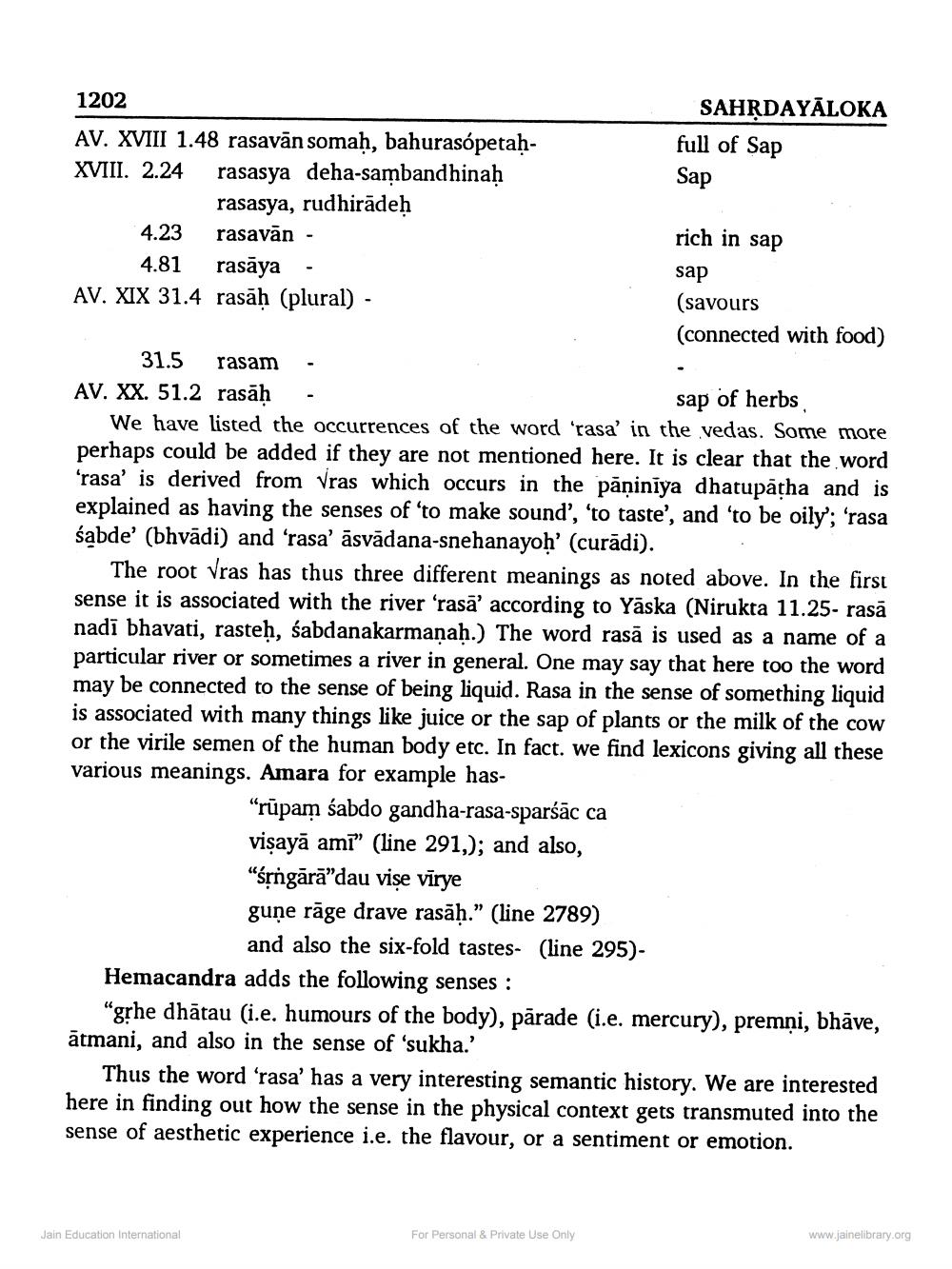________________
1202
SAHRDAYĀLOKA AV. XVIII 1.48 rasavān somaḥ, bahurasópetah
full of Sap XVIII. 2.24 rasasya deha-sambandhinaḥ
Sap rasasya, rudhiradeh 4.23 rasavān -
rich in sap 4.81 rasāya -
sap AV. XIX 31.4 rasāḥ (plural) -
(savours
(connected with food) 31.5 rasam . AV. XX. 51.2 rasāḥ -
sap of herbs We have listed the occurrences of the word 'rasa' in the vedas. Some more perhaps could be added if they are not mentioned here. It is clear that the word 'rasa' is derived from vras which occurs in the pāniniya dhatupātha and is explained as having the senses of 'to make sound', 'to taste', and 'to be oily'; 'rasa śabde' (bhvādi) and 'rasa' āsvādana-snehanayoh' (curādi).
The root vras has thus three different meanings as noted above. In the first sense it is associated with the river 'rasa' according to Yaska (Nirukta 11.25- rasa nadi bhavati, rasteḥ, śabdanakarmaṇaḥ.) The word rasā is used as a name of a particular river or sometimes a river in general. One may say that here too the word may be connected to the sense of being liquid. Rasa in the sense of something liquid is associated with many things like juice or the sap of plants or the milk of the cow or the virile semen of the human body etc. In fact, we find lexicons giving all these various meanings. Amara for example has
“rūpam śabdo gandha-rasa-sparśāc ca viṣayā amī” (line 291,); and also, "śộngārā”dau vise vīrye gune rāge drave rasāḥ.” (line 2789)
and also the six-fold tastes- (line 295)Hemacandra adds the following senses :
"gļhe dhātau (i.e. humours of the body), pārade (i.e. mercury), premņi, bhāve, ātmani, and also in the sense of 'sukha.'
Thus the word 'rasa' has a very interesting semantic history. We are interested here in finding out how the sense in the physical context gets transmuted into the sense of aesthetic experience i.e. the flavour, or a sentiment or emotion.
www.jainelibrary.org
For Personal & Private Use Only
Jain Education International




